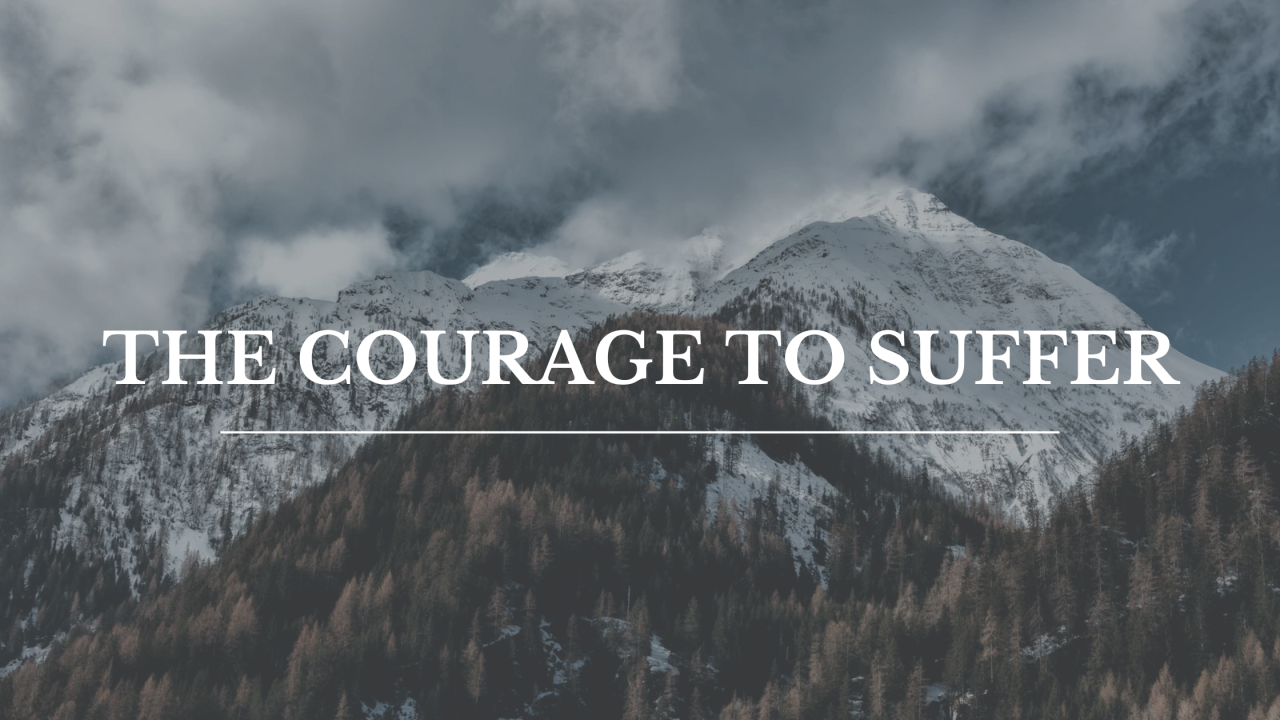The Courage to Suffer: Healing from Religious Trauma
“But there was no need to be ashamed of tears, for tears bore witness that a man had the greatest of courage, the courage to suffer.” — Viktor Frankl
One of the most pervasive challenges in mental health is our tendency to avoid emotional pain, especially in grief. Religious trauma often leaves wounds that aren’t immediately visible, and grief can be one of its quietest expressions. Many who have experienced spiritual harm mourn not only the loss of faith or community, but also the loss of trust, identity, and a sense of safety. While avoiding the discomfort of grief might feel protective or even instinctive when a loss feels insurmountable, over time it can create a cycle of unprocessed emotions that amplify our struggles rather than resolve them. In this article, I will explore Joanne Cacciatore’s insights in Bearing the Unbearable as she highlights the necessity of pain in the context of grief and emotional suffering.
The Nature of Grief
Grief, particularly in its early stages, is often intense, unpredictable, and all-consuming. It demands our full attention and can feel overwhelming, filling every space of our being. Despite this, modern culture often pushes us toward suppression. We’re encouraged to "move on" or to maintain a facade of strength and positivity. However, when we bypass pain, we also bypass aspects of our humanity. Ignoring grief means neglecting the love and depth it represents.
This avoidance disconnects us from our emotions, each other, and the world around us, creating a cycle of suffering. Conversely, engaging with pain allows us to process it directly. This approach has the potential to lead us toward freedom and a deeper sense of peace, as we reconnect with ourselves and the broader world.
The Roots of Avoidance
Why do we tend to shy away from emotional pain? Often, it comes down to fear. Emotions like grief, sadness, or anger can be daunting, even overwhelming. We naturally want to avoid these uncomfortable emotions in the present moment, doing anything we can to push the grief away. Cultural norms reinforce this fear by framing happiness as the ultimate pursuit and presenting any form of emotional discomfort as something to be eliminated. We are often taught that sadness and anger are ‘bad’ emotions that should not be expressed and should be replaced as quickly as possible.
However, the idea that avoiding pain leads to happiness is misleading. Ignoring emotional pain doesn’t make it go away; it becomes internalized, often resurfacing as anxiety and depression. Happiness will not be found without first understanding and embracing your pain. The author Kahlil Gibran expresses this idea beautifully in his poem “On Joy and Sorrow”:
Then a woman said, Speak to us of Joy and Sorrow.
And he answered: Your joy is your sorrow unmasked.
And the selfsame well from which your laughter rises was oftentimes filled with your tears. And how else can it be?
The deeper that sorrow carves into your being, the more joy you can contain.
Is not the cup that holds your wine the very cup that was burned in the potter’s oven?
And is not the lute that soothes your spirit, the very wood that was hollowed with knives?
When you are joyous, look deep into your heart and you shall find it is only that which has given you sorrow that is giving you joy.
When you are sorrowful look again in your heart, and you shall see that in truth you are weeping for that which has been your delight.
Some of you say, “Joy is greater than sorrow,” and others say, “Nay, sorrow is the greater.”
But I say unto you, they are inseparable. Together they come, and when one sits alone with you at your board, remember that the other is asleep upon your bed.
Embracing Presence as a Path Forward
The alternative to avoidance is profound: learning to stay present with our emotions, no matter how difficult they may be. This doesn’t mean allowing ourselves to dwell endlessly in despair but rather accepting emotions as they come and allowing them to pass through us. The more we practice staying present with our emotions, the more we develop trust in our capacity to navigate them.
This practice fosters self-trust, compassion, and resilience. Rather than viewing emotions as obstacles, we can see them as natural, transient experiences that are manageable and integral to our human existence.
When we stop resisting grief and allow ourselves to experience it fully, we find the freedom of being in our natural state, even if that state is in great pain. Facing grief in this way can be transformative—it creates room for integration. This process doesn’t only apply to grief but is relevant to any emotional challenge. Embracing difficult emotions allows us to understand ourselves more deeply.
Rethinking Mental Health
This shift in perspective requires courage, but it has the power to transform our approach to mental health. Rather than clinging to the belief that happiness is the only acceptable state, we can challenge the notion that discomfort equals failure or weakness. Instead, we can value authenticity and connection. This requires breaking free from cultural advice and recognizing that finding peace involves integrating, not eliminating, pain.
As a mental health counselor, I see how vital this understanding is. True freedom comes from allowing pain to guide us toward personal growth and understanding. It is often said that pain and purpose are two sides of the same coin. The solution lies in the brave act of staying present with our emotions. Our pain can guide us to live according to our values and seek out what is truly meaningful in life. Courage is enduring and engaging with suffering, and it is through this courage that we find the path to genuine recovery and connection.
If you are interested in learning more about my counseling practice, click the button below to get started on your mental health journey.
